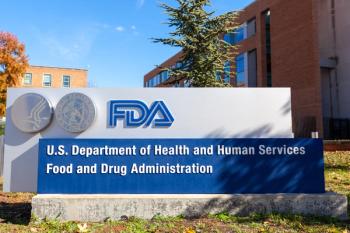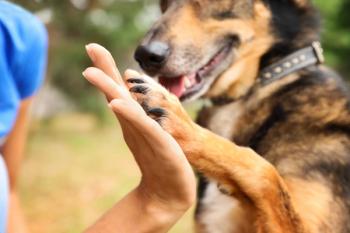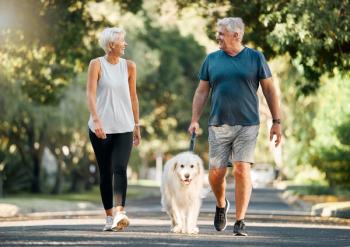
AVMA calls on Congress, veterinary caucus, to stop 'bickering' and end shutdown
Association says animal welfare, food safety and research hang in the balance.
The American Veterinary Medical Association (AVMA) called on Congress and the congressional face of veterinary medicine, Rep. Kurt Schrader, D-Ore., and Rep. Ted Yoho, R-Fla., to end the current government shutdown and get the nation’s federal employees involved in the health and welfare of animals and who ensure public safety back to work.
“We look to our elected officials in Congress, especially those who are part of the U.S. House Veterinary Medicine Caucus, to exert their leadership and help Congress rise above the partisan bickering to do what is right for both Americans and our nation’s livestock and pets,” says Ron DeHaven, DVM, MBA, AVMA’s chief executive officer, in a statement released today.
Schrader and Yoho, the bipartisan founding members of the veterinary caucus, are on opposing sides of the shutdown debate. Schrader has expressed his desire for a long-term debt and deficit reduction package. He has also introduced a bill to eliminate pay for members of Congress during future shutdowns. He has said he will donate his pay this go-round to an Oregon charity. Yoho has stood firm with conservation Republicans in efforts to tie the defunding or delay of the Patient Protection and Affordable Healthcare Act to the budget proposal.
Since the Senate’s rebuke of the budget proposals Yoho and his fellow House Republicans supported Monday night, the federal government effectively shut down without a passed budget proposal. Four days into the shutdown, Congress is still at an impasse.
“Each day that the U.S. government is shut down, we are faced with a dwindling supply of available vaccines to keep livestock healthy, a lack of inspections that protect animals from abuse, and a dearth of food safety inspections. Our elected officials need to double down on their efforts to come to a bipartisan, bicameral agreement and put Americans back to work so they can continue protecting the health and welfare of animals and the public,” DeHaven says.
The AVMA released a list of key veterinary programs including the potential effects of their closure due to the government shutdown:
>>The closure of the Animal and Plant Health Inspection Service’s (APHIS) Center for Veterinary Biologics (CVB), which verifies the safety of animal vaccines before releasing them into the marketplace. Most food-producing companies hold only a one- or two-week inventory of major vaccines, meaning that they could soon run out of their supply if the CVB is unable to release new batches after a two-week period. Food-animal producers may soon be forced not to vaccinate their flocks or herds, which will endanger herd health, food safety and public health.
>>The APHIS office that conducts inspections of animal facilities such as pet breeders, zoos and research facilities to ensure that animals are being given the proper care, per the health and welfare guidelines set by the Animal Welfare Act, has been suspended.
>>Though the U.S. Department of Agriculture’s Food Safety and Inspection Service (FSIS) will continue carrying out food safety inspections of meat and poultry products, the Food and Drug Administration will cease operations of its program that inspects the safety of seafood and dairy products.
>>The Centers for Disease Control, which monitors for foodborne illnesses, has been forced to reduce its staff, leaving the public more vulnerable to disease outbreaks.
The National Chicken Council, National Turkey Federation and U.S. Poultry and Egg Association have also written letters to members of Congress, urging them to stop the furloughs of technicians at the U.S. Department of Agriculture’s Center for Veterinary Biologics.
Newsletter
From exam room tips to practice management insights, get trusted veterinary news delivered straight to your inbox—subscribe to dvm360.





